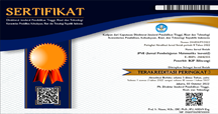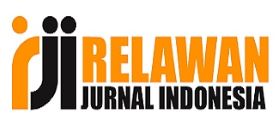ANALISIS VIDEO PEMBELAJARAN MATEMATIKA MAHASISWA PGSD UNIVERSITAS MATARAM PADA MATA KULIAH PEMBELAJARAN MATEMATIKA SD
DOI:
https://doi.org/10.22460/jpmi.v3i6.p%25pKeywords:
Video Analysis, Learning Stages, Primary Mathematics LearningAbstract
References
Bogdan, R. C., & Biklen, S. K. (2007). Qualitative research for education: an introduction to theories and methods (5th ed.). Boston: Pearson Education, Inc.
Chizhik, E. W., & Chizhik, A. W. (2018). Using Activity Theory to Examine How Teachers’ Lesson Plans Meet Students’ Learning Needs. Teacher Educator, 53(1), 67–85. https://doi.org/10.1080/08878730.2017.1296913
Coorey, J. (2016). Active Learning Methods and Technology: Strategies for Design Education. International Journal of Art and Design Education, 35(3), 337–347. https://doi.org/10.1111/jade.12112
Cowan, P. (2006). Teaching mathematics. New York: Routledge.
Gifford, S. (2005). Teaching Mathematics 3-5: Developing Learning in the Foundation Stage. New York: Open University Press.
Hannover, B., & Kessels, U. (2004). Self-to-prototype matching as a strategy for making academic choices. Why high school students do not like math and science. Learning and Instruction, 14(1), 51–67. https://doi.org/10.1016/j.learninstruc.2003.10.002
Iurmanova, S. A., & Balykhina, T. M. (2017). Scientific research activity: the origin of teaching methodology. Russian Linguistic Bulletin, 4(4), 40–41. https://doi.org/10.18454/RULB.4.12
Krantz, S. G. (2015). How to Teach Mathematics. In The American Mathematical Monthly (Vol. 101). https://doi.org/10.2307/2974708
Kwakman, K. (2003). Factors affecting teachers’ participation in professional learning activities. Teaching and Teacher Education, 19(2), 149–170. https://doi.org/10.1016/S0742-051X(02)00101-4
Leithwood, K., & Mascall, B. (2008). Collective leadership effects on student achievement. Educational Administration Quarterly, 44(4), 529–561. https://doi.org/10.1177/0013161X08321221
Montecinos, C., & Nielsen, L. E. (2004). Male Elementary Preservice Teachers’ Gendering of Teaching. Multicultural Perspectives, 6(2), 3–9. https://doi.org/10.1207/s15327892mcp0602_2
Pyhalto, K., Pietarinen, J., & Soini, T. (2015). Teachers professional agency and learning-from adaption to active modification in the teacher community. Teachers and Teaching: Theory and Practice, 21(7), 811–830. https://doi.org/10.1080/13540602.2014.995483
Seidel, T. (2006). The role of student characteristics in studying micro teaching-learning environments. Learning Environments Research, 9(3), 253–271. https://doi.org/10.1007/s10984-006-9012-x
Shemwell, J. T., Chase, C. C., & Schwartz, D. L. (2015). Seeking the general explanation: A test of inductive activities for learning and transfer. Journal of Research in Science Teaching, 52(1), 58–83. https://doi.org/10.1002/tea.21185
Szelei, N., Tinoca, L., & Pinho, A. S. (2019). Rethinking ‘cultural activities’: An examination of how teachers utilised student voice as a pedagogical tool in multicultural schools. Teaching and Teacher Education, 79, 176–187. https://doi.org/10.1016/j.tate.2018.12.020
Wright, M. C., Bergom, I., & Bartholomew, T. (2019). Decreased class size, increased active learning? Intended and enacted teaching strategies in smaller classes. Active Learning in Higher Education, 20(1), 51–62. https://doi.org/10.1177/1469787417735607

















